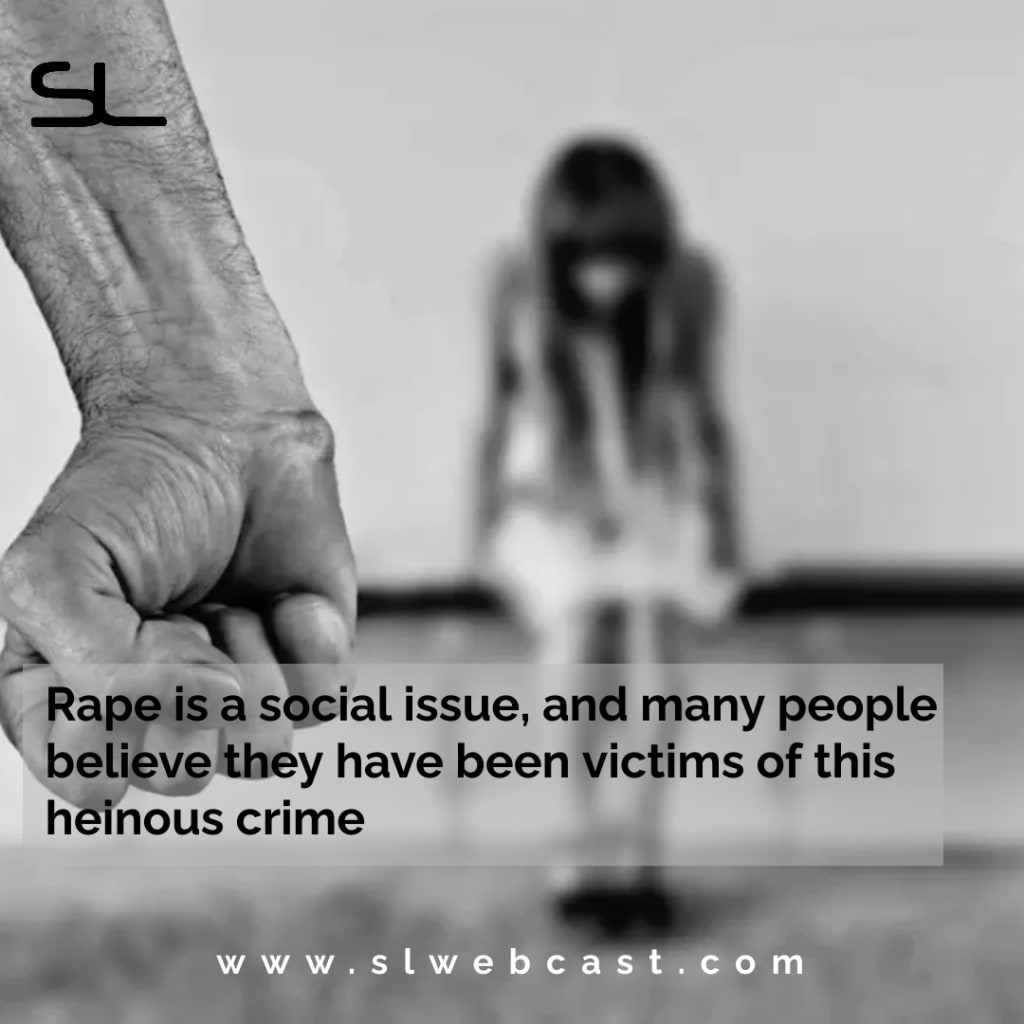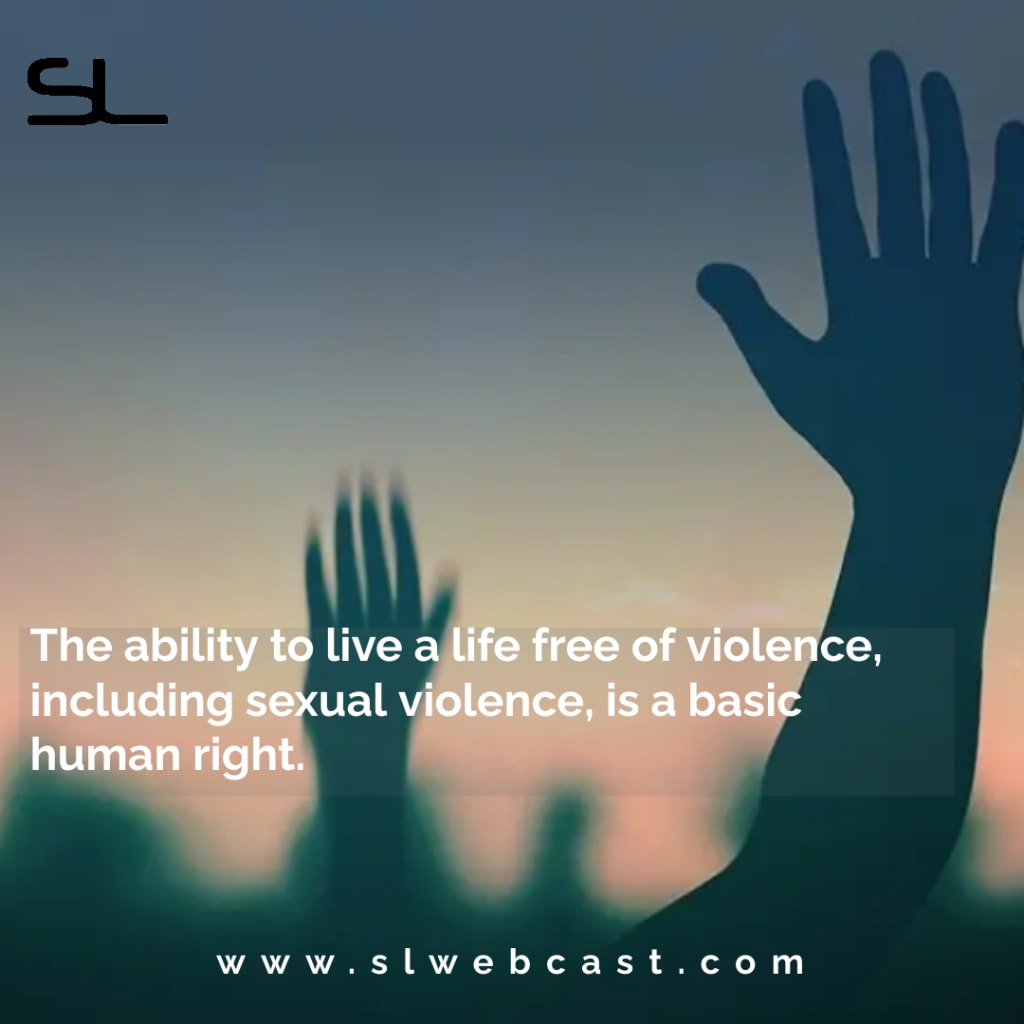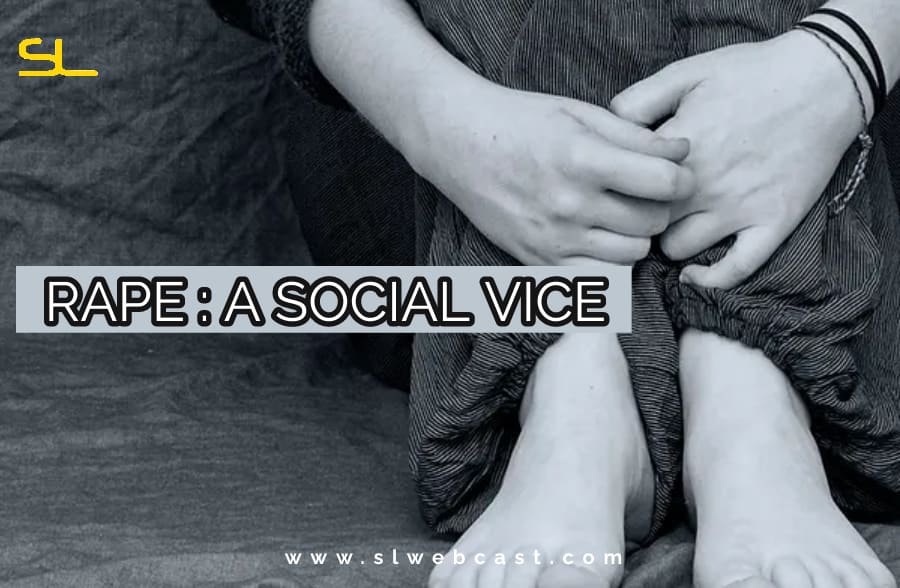Rape is one of the most physiologically damaging events that can happen to a person, an act of violence and force that the victim will never forget. Rape is a sexual offence in which a man, either male or female, forces another person to engage in sexual intercourse without their consent. Rape is a social issue, and many people believe they have been victims of this heinous crime. Rape is one of those topics that is considered to be highly sensitive and serious, but there will always be sources who find a way to say that the act of rape can be provoked.
Whether they claim that the victim was wearing too much skin-bearing clothing or that the victim was drunk, I believe that rape can only be blamed on the assaulter, regardless of the victim’s situation. One of the most common misconceptions about rape is that it is usually committed by strangers. This, however, is not the case. Date rape is a worldwide epidemic that affects tens of thousands of people at alarming rates. The rape stereotype in our culture today is a rape that occurs in the shadows.

The rapist may force the victim to have sex or engage in other types of sexual activity with them. This type resembles the “rape stereotype” the most, but it is still committed by someone the victim knows. The perpetrator may also use various drugs to inebriate the victim. Alcohol is the most commonly used drug because it is the easiest for people to obtain. With alcohol, the attacker may not even need to drug the victim. If a person is already severely inebriated, all they have to do most of the time is leave the victim alone. However, the perpetrator may also want to get the victim drunk. They may put pressure on the victim to continue drinking even if they know they have reached their limit. Other drugs can also be used to entice victims into having sex or to render them unconscious.
Sexual assault involves forcing someone to engage in any type of sexual activity against their will, even if sexual intercourse does not take place. Rape is when someone is forced to have sex against their will. Sexual assault is a crime that anyone can commit. Others should never blame or shame the victim, regardless of who they are. No one wants to be raped, but victims are frequently held responsible for the assault. The raped person is not only a victim but also a survivor. In its most basic form, consent is freely, voluntarily, and actively agreeing to engage in sexual activity with another person. It informs the person you’re with that you want and agrees to sexual activity with them – and it informs you if they want the same.
Active consent then means remaining open and honest with someone about what you want and don’t want. Anyone, regardless of age, gender, race, or sexual orientation, can be sexually assaulted. Although legal definitions vary by state, sexual assault is a broad term that refers to any type of sexual activity that occurs without consent. Unwanted touching or kissing, sexual contact with someone under the influence of drugs or alcohol and being unable to give an informed “yes” or “no,” or rape are examples of sexual assault behaviour.
We all have the right to refuse sex or other forms of sexual activity. Everyone has the right to change their minds at any time. Or to agree to one sexual act with someone but not another. Any sexual activity without consent is sexual violence. To avoid the cry of rape, make sure your sexual partner is completely on board with the act. Never assume a sexual partner is ready or willing to engage in sexual activity. No means no, as does any other similar phrase that indicates unwillingness. To avoid being a victim, however, “no” should always be stated in a clean, serious tone.
Because consent must include the freedom and capacity to consent, simply saying ‘yes’ is insufficient. Being forced, pressed, bullied, manipulated, tricked, or scared robs us of our freedom and ability to make choices in a variety of situations.

For example, if someone is in an abusive relationship, they may say ‘yes’ to something out of fear for their own or other people’s safety – which is very different from saying ‘yes’ because they truly wanted to. Fear took away their freedom and ability to make informed decisions.
If someone appears unsure, remains silent, moves away, or does not respond, they do not consent to sexual activity. In fact, it is very common for people who have been sexually abused to become unable to move or speak. If you’re having a sexual encounter with someone and they ask you to stop, and you don’t, you’re breaking the law.
Laws that stigmatize victims and make justice and accountability more difficult must be replaced with laws that reflect the true nature of sexual violence, exclude negative stereotypes and myths, and are informed by survivors’ experiences. Good laws are an important first step, but they are insufficient to prevent sexual violence and provide justice to survivors. Laws are only effective if they are properly implemented, which necessitates educating the public about their rights and properly training those tasked with enforcing the law. Sexual violence and negative interactions with the criminal justice system are more common in marginalized groups. As every survivor is entitled to justice and support, an intersectional lens must be integrated into laws, policies, and procedures from the start, and systems must be designed to accommodate a diverse range of needs and identities.
The ability to live a life free of violence, including sexual violence, is a basic human right.



